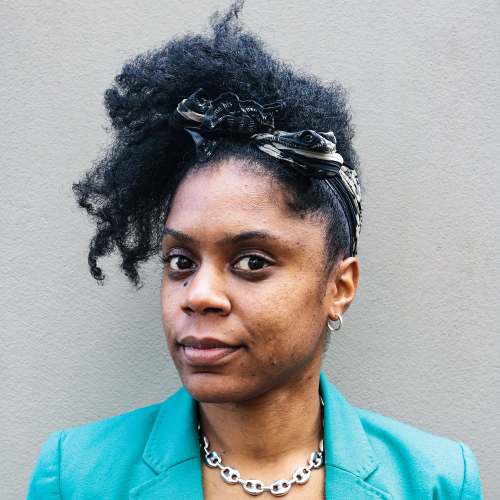Introverted Teachers have a Key Role to Play in Schools

Introverted teachers have a key role to play in schools alongside their more extroverted colleagues, but there are misperceptions to overcome…

- by Iesha Small

I don’t think I realised I was an introvert. I enjoyed teaching but I also knew that at the end of a full day of interacting with people I valued my quiet time when I got home before everybody else in my household.
I enjoy interacting with people but I also need long stretches of time alone and I tend to prefer being in small group or one-to-one interactions over socialising or working in large groups. Apparently, my preference for calm, minimally stimulating environments puts me firmly at the introverted end of the spectrum.
As a class teacher, this generally wasn’t a problem. Classrooms aren’t always the quietest places but whole-class teaching is often a very particular way of interacting and once I’d explained the main part of the lesson to my classes, I was happy interacting with individual children or small groups.
I found a way to teach that fostered children’s independence, which had the added benefit of allowing me to step back a little and keep my own emotional energy.
Quiet time
The part that did appear to be a problem was some of the non-teaching aspects of my job. After lots of interacting in lessons, which I often enjoyed, I found that I needed solitude.
I found myself increasingly seeking out quietness in the gaps of my day, especially as I became busier and took on more responsibility.
This was essential so that I was able to perform well in the classroom. Unintentionally, at break times and lunchtime, I would find myself sitting in my classroom or office just to recalibrate.
This wasn’t about avoiding people – sometimes children or colleagues I got on well with would come and seek me out; it was more about consciously finding times for reflection in a day with lots of external stimuli.
I didn’t realise it but this behaviour made some colleagues who didn’t know me well feel like I was aloof.
I remember once applying for an internal promotion and my boss telling me that it was clear that my classes loved me and that I was good at my job, but that other members of the senior leadership team felt like they didn’t really have much sense of me as a person because I was often in my classroom or office rather than the staff room.
The interesting flip side of this is that throughout my career, staff and children who wanted to seek me out or discuss sensitive issues have found me very approachable because they knew I wouldn’t always be surrounded by other people and knew that I was a good listener.
When I was an assistant headteacher, I was called into my boss’s office. “Iesha,” he said, “have a seat.” I took the one opposite him at the huge conference table that dominated the office.
So far, so normal; we met like this on a weekly basis. But next he said something which really had an impact on me. “I don’t feel like this year has been a very successful year for you, compared to last year.” He went on to outline why.
I sat and listened quietly but inside, I have to be honest, I was livid. I left the meeting calmly, but internally seething. In my view, I’d actually had a more successful year than the previous one.
My work had a wider impact due to who I’d worked with and projects that I’d initiated, or so I thought. However, to outside observers it seemed that I’d had a much lower profile compared to the preceding year.
Finding a platform
Despite disagreeing with him at the time, I can now see that my boss did me a favour. After that meeting, I realised that in our working lives, whether we like it or not, perception is very important, as the perception of you becomes other people’s reality.
Knowing this could empower me. My boss was supportive and we subsequently found projects that made use of my skillset while giving me a platform to be more visible.
One was leading on our school transition to a new internal assessment system.
It involved lots of research and consultation, which I enjoy, as well as the one-to-one and small meetings that I was skilled at, but crucially it affected everybody in the school in one way or another and there was a clear outcome because it resulted in a pilot and subsequent roll-out to other years.
Small groups
Another involved me leading on staff and governor training related to LGBT issues which I tackled as a series of twilights targeting groups of no more than 30 at a time (we had over 100 staff).
This worked because, once again I was exposed to all staff but in a way that suited me and it was about a topic I was passionate about so that came across and was well received.
It’s also always good when staff can see school leadership teams in a setting that is closer to teaching and appreciate that you are skilled at helping people to learn too.
However, not everything can be done in small groups or workshops; sometimes teachers and leaders need to talk to larger audiences. I first shared my ideas about being an introverted leader publicly during a talk at a major education conference.
I was nervous but made the experience more manageable because I was well prepared. In talking to other introverted teachers I have found this is a recurring theme. Lila, now an executive headteacher of an oversubscribed school recalled her first ever assembly:
“I carefully structured the message that I wanted to give about the use of praise as well as sanctions. I got such good feedback after every assembly and that made me feel really confident because I hadn’t done assemblies prior to that role.”
Written word
Writing really is the killer tool. If you practice writing clearly to persuade others and convey a point it makes everything else much easier and means you can prepare for when you are speaking to people face to face in almost any context.
Also don’t forget how much of communication in schools these days is actually in writing via letters and emails.
Positive environment
Introverted teachers have a key role to play in schools alongside their more extroverted colleagues. On a day-to-day basis it’s important to find time to recharge, whether that’s during break or lunchtimes or at the end of the day.
Additionally, we can be role models to the quieter members of the classes that we teach and create opportunities for their voices to be heard as often as their more-extroverted peers.
Schools are sociable places so find ways to interact and connect with colleagues and children in a way that works best for you, even if that’s quiet conversations in the middle of a busy playground.
Line managers can level the playing field for introverts by providing materials and agenda for meetings in advance as well as paying attention to all contributions during meetings and asking for the opinions of those who have not had a chance to speak.
Iesha Small is the author of The Unexpected Leader (£18.99, Independent Thinking Press) and is innovation lead at education think tank LKMco. Find her at ieshasmall.com and follow her on Twitter at @ieshasmall.











